Restrictive Diets for Weight Loss – Are They Good for You?

One of the most common ways I see women trying to lose weight is through restrictive diets. These types of diets can get a bad rap for being too strict or even dangerous. Despite this, I know that a lot of women try them and say they’ve had great weight loss results!
The mixed reviews can be confusing. It can be hard to know what’s best for your body and your fitness journey. In this piece, I’ll explain more about what restrictive diets are and how they can impact your health and weight.
WHAT IS A RESTRICTIVE DIET?
Restrictive diets are any type of diet that cut out major food groups or calories for the sake of losing weight or reducing fat.
DIFFERENT TYPES OF RESTRICTIVE DIETS
There are so many different types of diets out there! Over the year, different diets have become popular while others have declined.
In general, though, I notice that most diets tend to
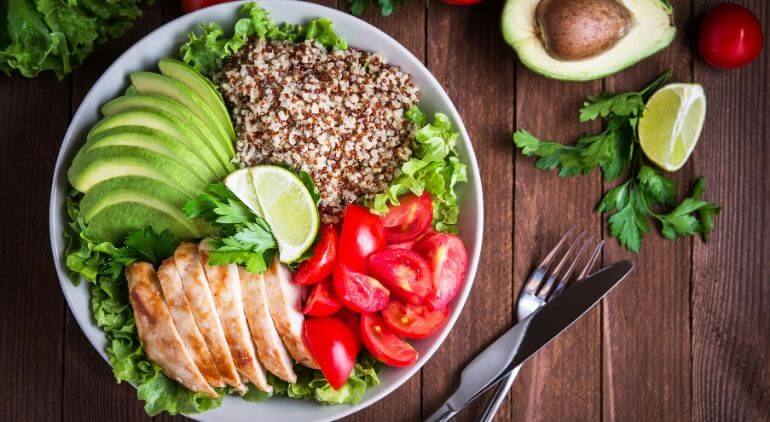
LOW CARB DIETS
Low carb diets are pretty common right now. These diets work by forcing your body to convert fat and protein into glucose instead of the carbohydrates it typically uses.
When you eat low carb, your body adapts to derive more energy from fat, which means you typically burn more fat too.
Low carb diets can also:
- Lower blood pressure
- Reduce blood sugar
- Increase healthy cholesterol in the body
Here are some of the most popular low carb diets out there:
ATKINS DIET
With the Atkins diet, you can eat as much food as you want as long as you avoid high-carb food.
The high protein content that people on this diet eat means they are often pretty satisfied with their meals, and they don’t overeat. Overall, people tend to lose weight on this diet.
Although this diet was controversial when it first started becoming popular, most people recognize that it can have some health benefits.
This diet is fit into four phases:
Phase 1: Eat less than 20 grams of carbohydrates a day for two weeks. Instead, eat plenty of protein, high fat, and low-carb veggies like leafy greens. This helps to kick start the weight loss.
Phase 2: Slowly add nuts, fruit, and low-carb vegetables back into your diet.
Phase 3: Once you are close to your goal weight, add in more carbohydrates until your weight loss evens out.
Phase 4: Eat as many carbs as you want without gaining more weight.
RELATED POST: HOW TO CALCULATE YOUR MACROS

KETO DIET
The keto diet is receiving a lot of attention lately. Like other low carb diets, it works by forcing the body to use stored fat, instead of carbohydrates, for energy. This can help people lose weight and keep extra fat off.
Also, many people find fats and protein more filling than carbohydrates. They often end up eating fewer calories throughout the day because they feel more satisfied with the meals that they are eating.
A know that some people and even some celebrities (Vanessa Hudgens) combine keto with intermittent fasting.
I’ll talk more about fasting later, but it works in a similar way as keto. It forces your body to use stored fat as energy. Because of this, these two diets can complement each other.
One of the biggest criticisms people have of the keto diet is that it can be really hard to get micronutrients this way because of all the fruits and vegetables you could be missing.
If you do the keto diet, it is important to eat as many vegetables as possible without going over your carbohydrate limit. Some of the best veggies to eat while on keto are cucumbers, broccoli, onions, squash, artichokes, leafy greens (spinach and kale are great!), asparagus, cabbage, and cauliflower.
PALEO DIET
People who are on the Paleo diet eat only foods that they believe hunter-gatherers would have eaten. They eat lots of lean protein, vegetables and fruits, and nuts and avoid sugar, dairy, grains, and other processed food.
Most people on this diet eat fewer carbs, more protein, and fewer calories overall. They end up feeling fuller from the meals they are eating, and the lower calorie content helps them to lose weight.
RELATED POST: HOW TO DROP BODY FAT IN ONE WEEK
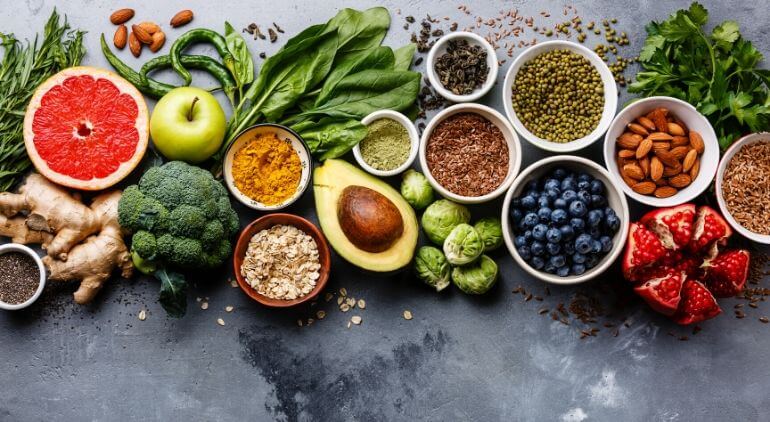
FASTING DIETS
I receive lots of questions about intermittent fasting, and this is another common restrictive form of dieting.
Intermittent fasting works by disrupting your body’s metabolism. When you eat several times a day, you’re constantly giving your body fuel. This isn’t a bad thing. However, when you break that cycle up and surprise your body, it has to turn to stored fat for fuel instead.
The important thing to remember about fasting diets is that you are not purposefully limiting your calorie content. When you’re fasting, you don’t eat. But, when you aren’t in the fasting window, you should eat an amount that satisfies your body.
By having less time to eat in a day, though, most people end up eating fewer calories with a fasting diet. They are more likely to eat nutritious foods and cut out sweets, extra snacks, and calorie-dense drinks.
As a result, fasting diets tend to work in four ways:
- Increasing your metabolism.
- Forcing your body to use stored fat for energy.
- Eating fewer calories overall (even if this isn’t intentional!).
- Reducing the hormones insulin and leptin, which are responsible for storing fat.
Here are some of the most popular types of fasting:
CRESCENDO METHOD
With this method, you fast for 12-16 hours and let yourself eat for 8-12 hours of the day. Most people (especially beginners!) fast overnight. Most people alternate fasting days and non-fasting days throughout the week.
16/8 METHOD
Fast for 16 hours and eat for 8 hours. Alternate days of fasting and non-fasting.
Eating during an 8-hour window can be helpful to speed up your metabolism and encourage weight loss.
24-HOUR FAST
Fast one day a week, starting when you wake up. Eat normally for the rest of the week. If you do this, it could be a good idea to check with your doctor first.
I wouldn’t advise intermittent fasting for anyone with adrenal fatigue, or who is pregnant.
RELATED POST: INTERMITTENT FASTING FOR GETTING LEAN

CALORIE RESTRICTIVE DIETS
Calorie restrictive diets require people to eat less than their typical daily caloric intake. On this diet, you lose weight through simple math: you burn more calories than you consume.
Everybody requires a different amount of calories each day to maintain their weight. It all depends on your height, build, activity level, age, and metabolism. I have a blog post
There is some evidence that calorie restrictive diets have some other health benefits, including:
- Lower blood pressure and blood sugar.
- Reduced risk for diabetes, heart disease, and stroke.
- A decrease in inflammation and thyroid imbalances.
However, there is also evidence that suggests that calorie-restrictive diets can reduce bone density and affect muscle mass.
Remember, these diets are NOT about starving yourself. You should be eating no less than a couple of hundred calories under your recommended daily calorie intake without depriving yourself of basic and essential nutrients.
Eating too little can damage your metabolism long term, which is bad for your overall health and it will actually slow down your weight loss. I would never advise eating less than 1200 calories per day.
As always, if you have concerns, talk to your doctor about your health needs. :)
RELATED POST: 6 UNEXPECTED REASONS WHY YOU CAN’T LOSE WEIGHT

ARE RESTRICTIVE DIETS BAD FOR YOU?
Restrictive diets often do what they promise. They help you lose weight. For many people who are wanting healthier, fitter bodies, this is a good thing!
However, restrictive diets aren’t always easy on our bodies, and they can be harmful.
Restrictive diets have the potential to:
SLOW DOWN YOUR METABOLISM.
This can actually end up causing you to gain more weight after you stop your diet!
If you restrict your calorie intake for a long time and you exercise vigorously during that time, your stress hormone (cortisol) levels will get higher.
Stress and weight gain often go hand in hand and this is because cortisol affects your metabolism.
When you have increased levels of cortisol in your system, your blood sugar levels also increase.
So if your stress levels continue and you have too much cortisol in your bloodstream, your blood sugar levels will stay elevated for hours or even days at a time!
When your blood sugar is constantly that high, you can’t burn off calories as easily. And when you don’t burn excess calories, your cells will store them as fat for later use, especially on your hips and lower belly.
MAKE YOU FEEL SLUGGISH.
Not eating enough food often means that you’re missing out on key macronutrients and micronutrients that your body needs to function well.
Not eating enough carbohydrates especially can make you feel extra tired. It’s also easy to miss out on iron, folate, vitamin B12 and fiber.
To avoid this, make sure you’re not overly restricting your calories. Also, try to eat a wide variety of healthy, whole foods.

AFFECT YOUR HORMONES AND REPRODUCTIVE HEALTH.
When women don’t eat enough, their estrogen and luteinizing hormone levels can go down. This can lead to problems with your period and can even reduce fertility.
If you are dieting and notice changes with your cycle, make sure to talk to your doctor.
HOW TO BE A RESPONSIBLE DIETER
Despite the dangers, restrictive diets are not necessarily bad. You just have to be smart about them and listen to your body. If you decide to do a restrictive diet, make sure that you are being responsible with it.
I suggest:
- Talking with your doctor before and during the diet.
- Making sure the food you’re eating is high in vitamins and minerals.
- Eating as much whole, unprocessed food as possible.
- Trying to pay attention to your body. Stop if you notice negative side effects!
7 DAY NUTRITION PLAN FOR A HEALTHY WEIGHT LOSS
For some people, restrictive diets, like keto or calorie counting, are enough to kick start their weight loss and help them keep healthy habits for life.
However, if you’re hoping to lose weight, more experts agree that it is good to be patient with your body and look for nutrition plans that will help you maintain your healthy weight for the rest of your life.
In my personal experience, super restrictive diets can be hard on people emotionally and physically. It’s really easy for people to binge or even give up healthy eating altogether after going on a super restrictive diet.
My 7-day slim leg diet plan is a balanced approach to dieting that isn’t too restrictive. It mimics what’s worked well for me and for countless women that I’ve worked with!
In this plan, I focus on:
- Eating at a slight calorie deficit to help with weight loss.
- Eliminating food like refined sugar and dairy. Both of these can cause weight gain, hormonal imbalances, and inflammation.
- Giving you a shopping list to help you pick out a wide range of nutritional food.
- Teaching you to make different recipes that are healthy.
- Explaining why these meals are good for getting a great body so that you have long-term knowledge going forward!
FOCUS ON WHAT’S BEST FOR YOU!
Becoming a healthier person, building a lean and toned body, and losing weight are common goals to have! Luckily, you
If you decide to try a restrictive diet to help you slim down, just make sure you do so responsibly. If you don’t believe this is what’s best for you, remember that there are other ways to lose weight long-term.
As always, I love supporting you on your fitness journey! Let me know if you have any more questions about dieting.
Love,
Rachael xx

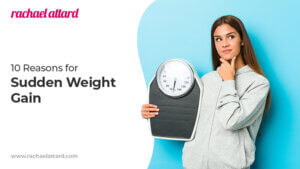
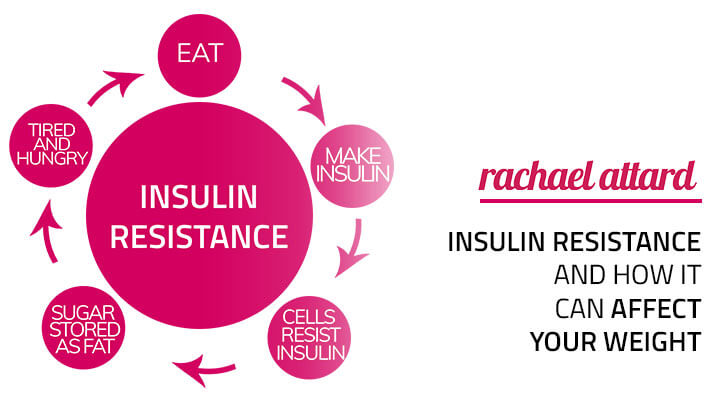
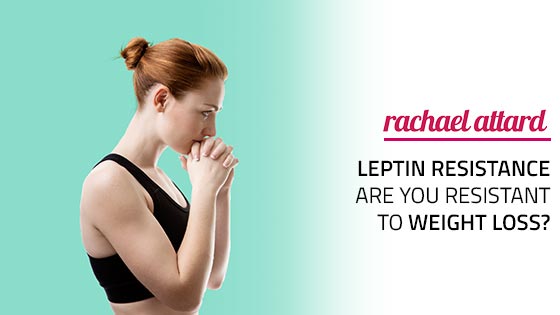



Hi Rachael,
I’m just wondering what you’re thoughts are on the slimming world diet? And if I incorporated that with your workout would I still get results?
Thank you
Aliya
Hi lovely,
If you are following Rachael’s ‘3 Steps to Lean Legs’ Program, it is best you rely on the meal plan that is in the Program in order to get optimal results.
Hope this helps! xx
Love,
Tina